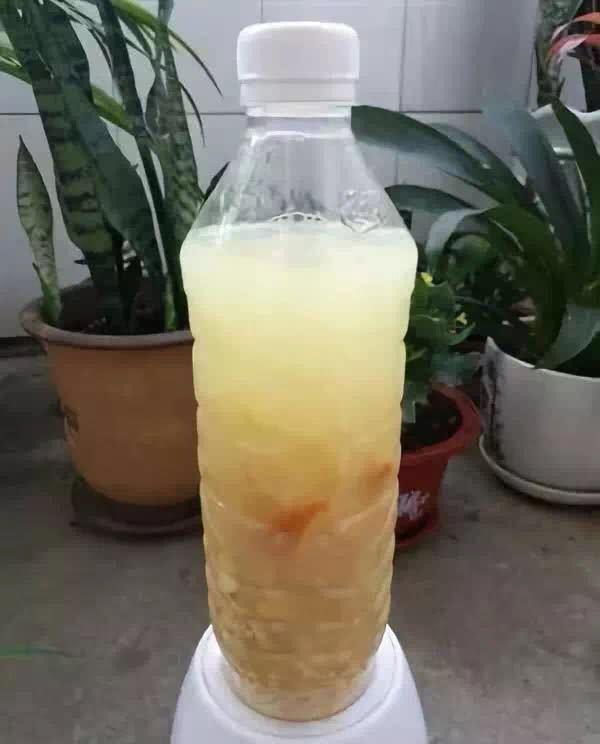With a gentle spray, these plants will never have yellow leaves again.

Many flower friends like to raise several pots of rhododendron, gardenia, jasmine and so on at home. These are the most popular flowers with high appearance and good ornamental value. Keeping them at home is simply a beautiful scenery.
However, there is always a big problem in the process of maintaining these flowers. These kinds of flowers prefer acidic soil, but because the soil in the north is more alkaline, it is not very suitable for the growth of flowers such as rhododendron and gardenia. Lead to the phenomenon of yellow leaves.
In order to avoid this situation, the editor here has prepared three very effective self-made sprays for you to spray gently on the flowers at home to ensure that cuckoos, gardenias, jasmine and other flowers will no longer have yellow leaves.
Ferrous sulfate solvent
1. Prepare some ferrous sulfate fertilizer particles, then mix them with water in a ratio of 1 to 200.
2. Then the ferrous sulfate solvent can be sprayed on the surface of the flower soil. Ferrous sulfate can improve the acidity and alkalinity of the soil, which is beneficial to the growth of acid-loving flowers.
3. Or the ferrous sulfate particles and water can be mixed at the ratio of 1 to 500, and then sprayed directly on the leaf surface of the plant.
4. Ferrous sulfate also contains sufficient iron, which can improve plant growth and accelerate flower metabolism.
5. Pay attention to the frequency of spraying ferrous sulfate solvent, and it is better to use this solvent no more than twice a week during the growth period.
Vinegar solvent
1. Vinegar can be said to be a favorable solvent for acidophilic flowers. It can not only improve the acidity and alkalinity of the soil, but also promote the absorption of iron by plants and enhance the disease resistance of flowers.
2. After mixing vinegar and water at the ratio of 1 to 300, spray it on the surface of the flowers, which can play the role of foliar fertilization and enhance the resistance of plants.
3. Vinegar and clear water can also be mixed at the ratio of 1 to 200, and then sprayed on the soil surface to improve the acidity and alkalinity of the soil.
4, pay attention to the use of this method, do not use expired vinegar or added salt vinegar, general qualified vinegar on the line.
Self-made solvent
1. In addition to the above two methods, the acidity and alkalinity of the soil can also be improved by fully fermenting fruit peels containing fruit acid, such as citrus peel, grapefruit peel, etc., and watering them with water.
2. Wash the orange peel, grapefruit peel, etc., then put it into the container and pour some water into the container. Cover the peel with the water level.
3. After that, the container is placed in a position with direct sunlight and exposed to strong light. After about two to three weeks, the color of the water in the container changes obviously, which means the fermentation is successful.
4. Then mix the successfully fermented solution and water at 1:4 and spray it on the soil surface.
5. The frequency is once or twice a week. This method can not only improve the acidity and alkalinity of soil, but also increase the effect of soil fertilizer.
If you also like growing flowers, follow us!
- Prev

Devotion to each other to teach ingenuity inheritance
Inherit and teach each other to grow upward and grow forever. For thousands of years, the fire has been handed down from generation to generation. There is a kind of growth, need to draw strength, there is a kind of inheritance, called master and apprentice. As a teacher, preach and teach karma to solve doubts; as an apprentice, respect the teacher and observe courtesy and diligence. Yiguang Garden.
- Next

This kind of watering flowers is the three great benefits of growing flowers.
People who have been raising flowers for a long time may have mastered a lot of tips on growing flowers. In fact, every little skill in the process of growing flowers comes from life. As an indispensable part of life, potted flowers play an important role. ...
Related
- Wuhan Hospital Iron Tree Blooming Result Was Instantly Frightened by the Gardener Master
- Which variety of camellia is the most fragrant and best? Which one do you like best?
- What is the small blue coat, the breeding methods and matters needing attention of the succulent plant
- Dormancy time and maintenance management of succulent plants during dormancy
- Minas succulent how to raise, Minas succulent plant pictures
- What are the varieties of winter succulent plants
- How to raise succulent plants in twelve rolls? let's take a look at some experience of breeding twelve rolls.
- Attention should be paid to water control for succulent plants during dormant period (winter and summer)
- Watering experience of twelve rolls of succulent plants
- Techniques for fertilizing succulent plants. An article will let you know how to fertilize succulent plants.

